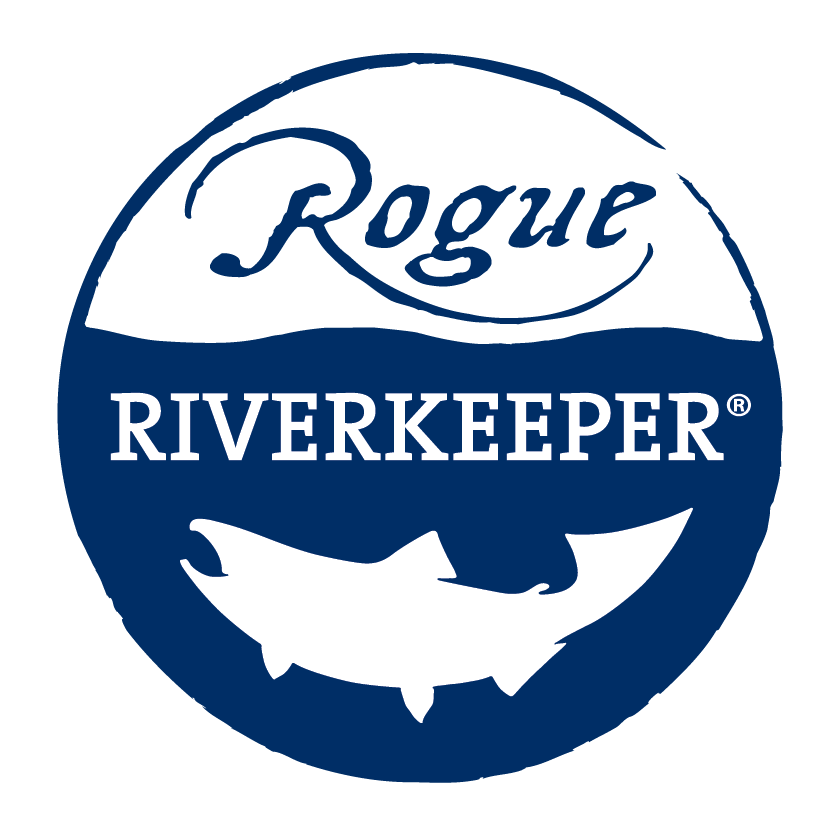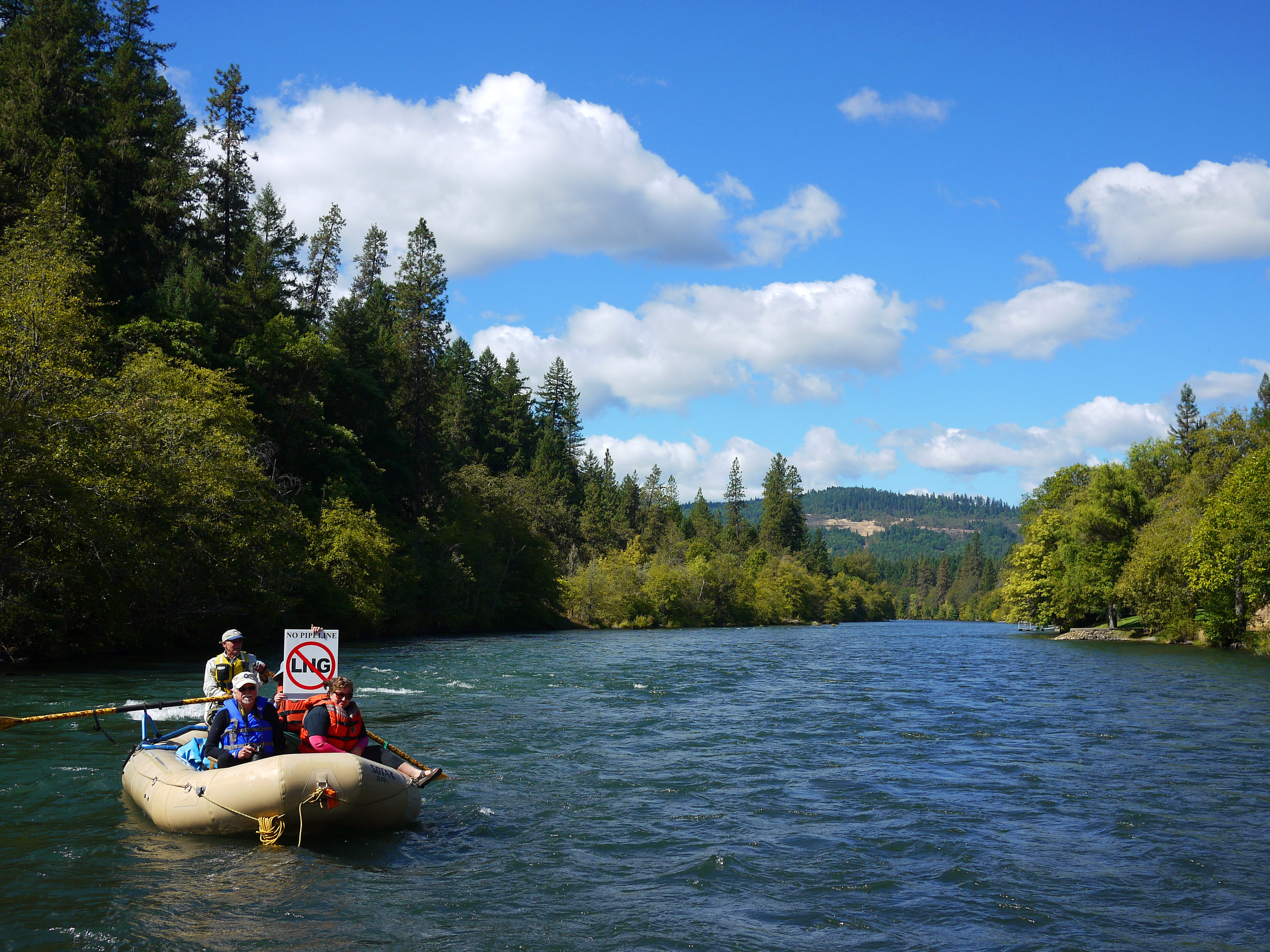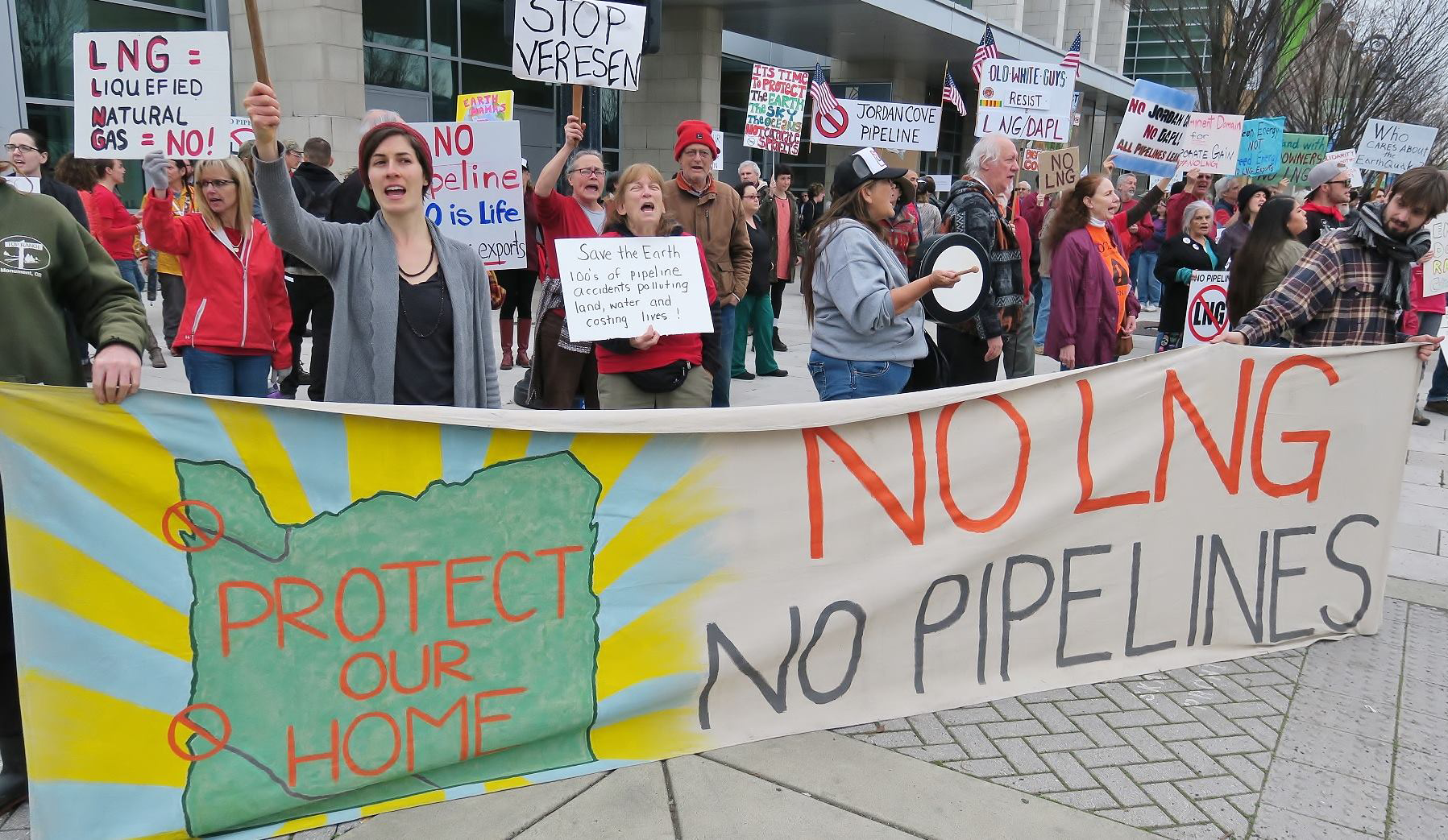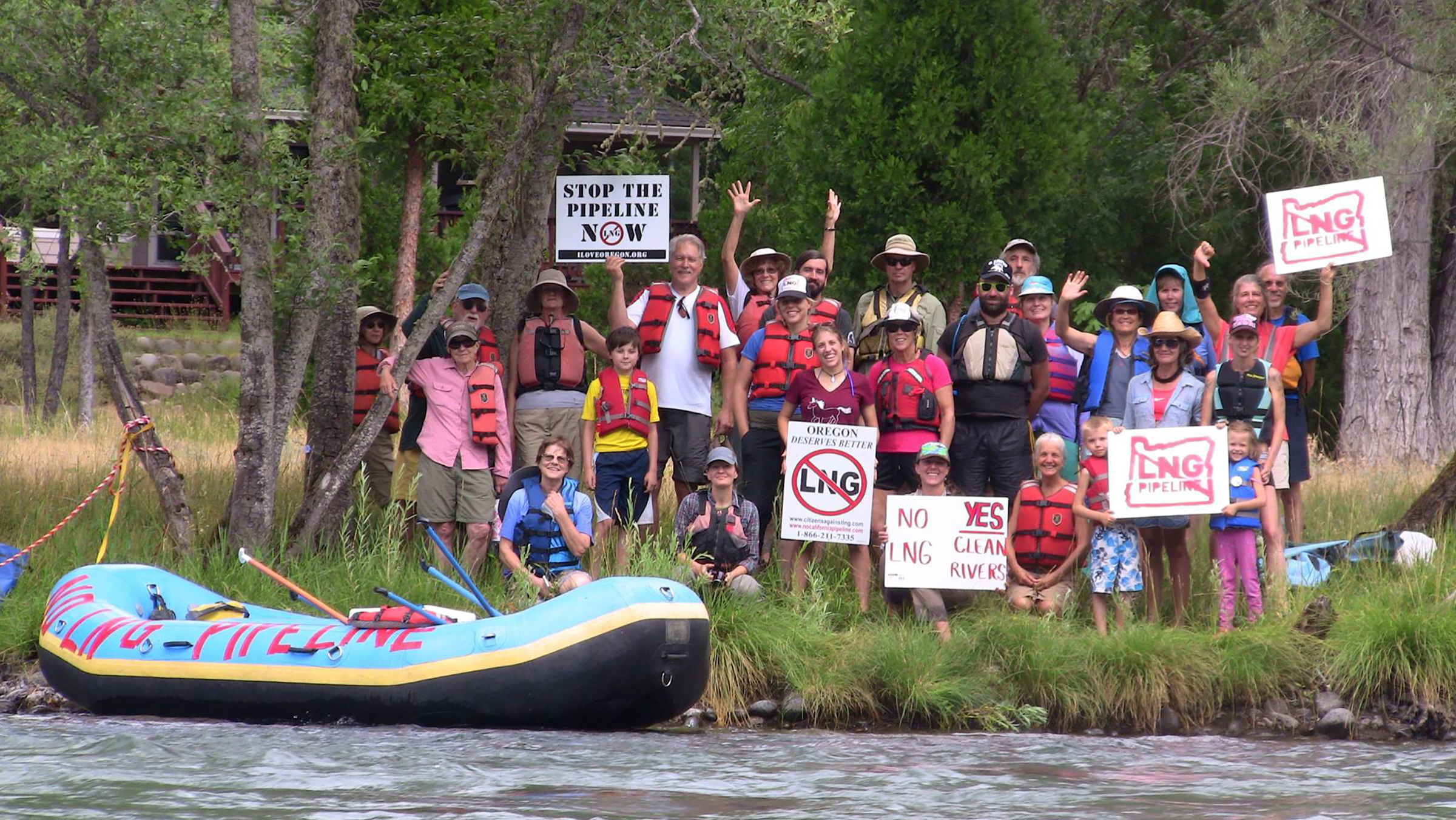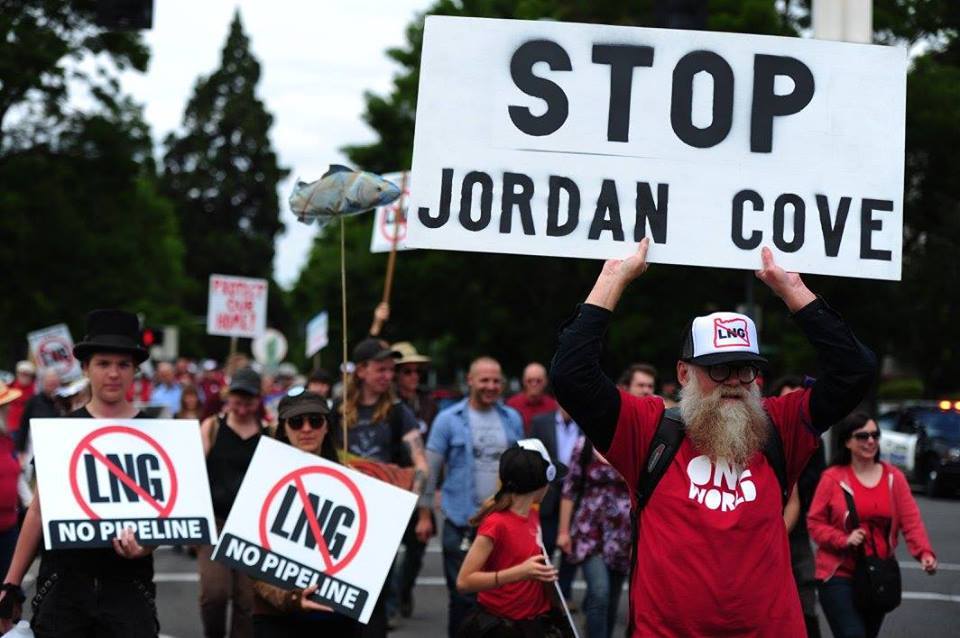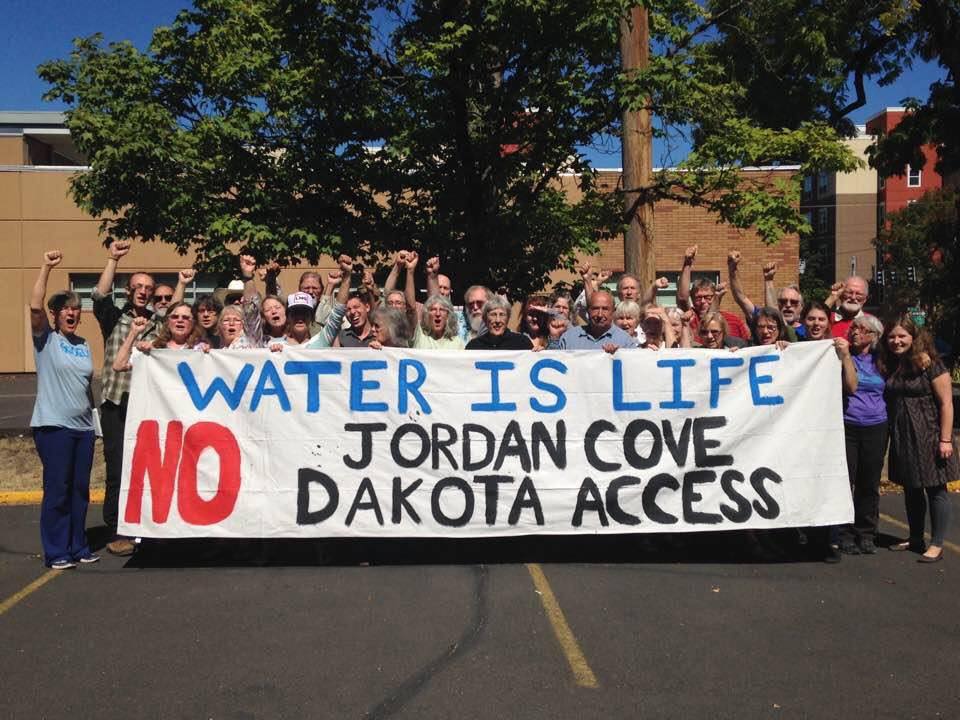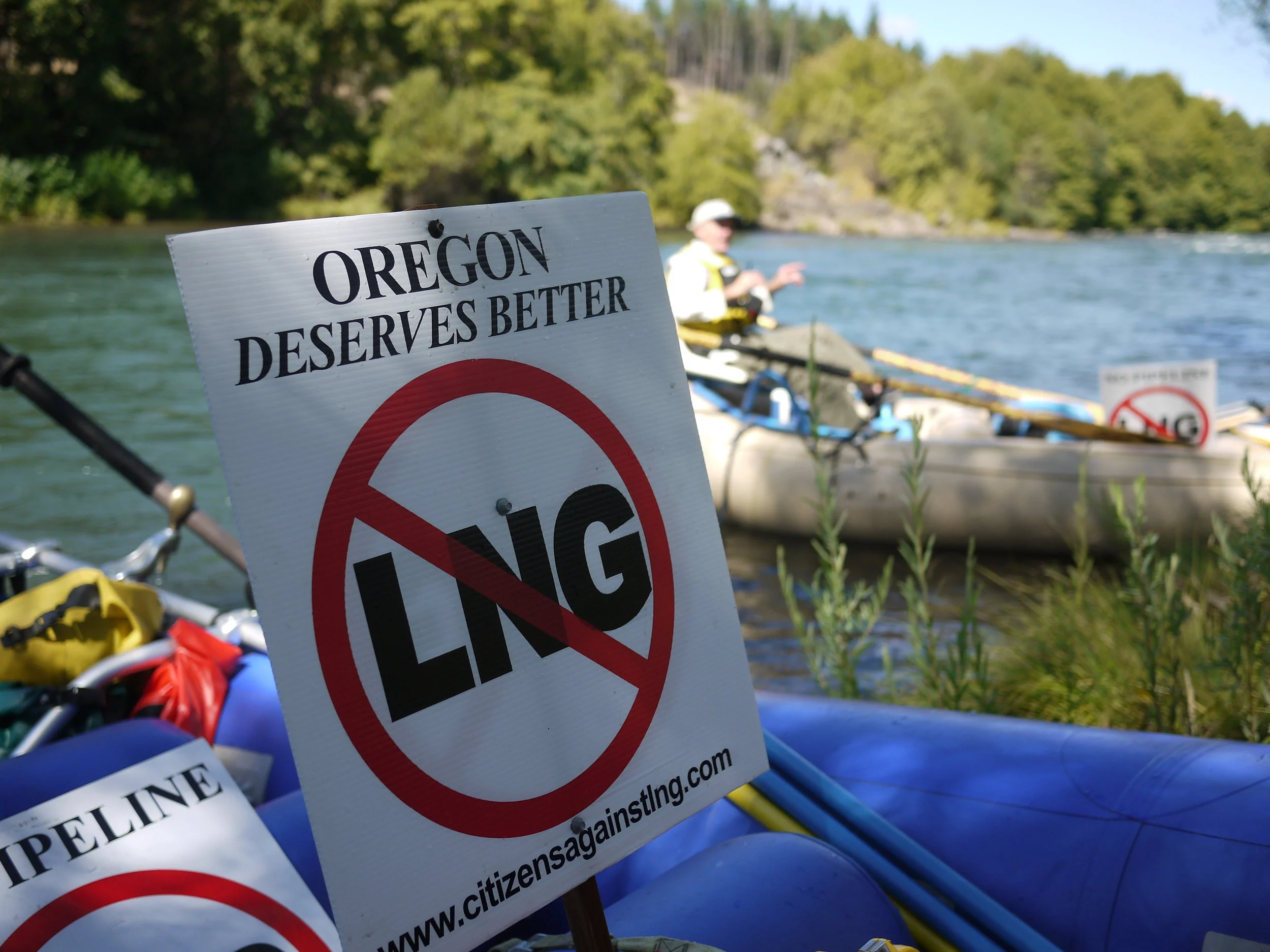FOR IMMEDIATE RELEASE:
Monday, February 8, 2020
CONTACT:
Allie Rosenbluth, allie@rogueclimate.org, 541-816-2240
Oregon Denial of Jordan Cove LNG Project Upheld by Federal Government
Decision marks yet another blow against the proposed fracked gas project and LNG terminal in Southern Oregon
[Washington, D.C.] — The proposed Jordan Cove LNG export terminal and fracked gas pipeline faced another massive blow today when the US Secretary of Commerce rejected a request to override the State of Oregon’s February 2020 denial of the Coastal Zone Management Act (CZMA) federal consistency review. This project cannot begin construction without approval of the CZMA federal consistency review. This is another enormous victory for communities across the region who have been fighting this project for over 15 years.
“Pembina’s last-ditch effort to override Oregon’s authority to stop Jordan Cove LNG has failed,” said Allie Rosenbluth, Campaigns Director at Rogue Climate. “Oregonians and our state agencies know that this project is bad for our coast, climate, and communities. This victory is thanks to the thousands of people speaking out against this dangerous project. Together we will assure Jordan Cove LNG is never built and that our communities can focus on building local jobs in clean energy instead.”
“We are thrilled that Oregon’s decision is being upheld at the federal level to protect the coastal zone which runs from the peak of the Coast Range to the waves of the Pacific Ocean, from this dangerous and destructive project,” said Katy Eymann, President of Coos County organization Citizens for Renewables. “I am so thankful that the voices of many, many people living in our coastal zone have been heard and respected.”
The Coastal Zone Management Act provides that states may review projects requiring a federal permit for consistency with the state’s enforceable policies of its coastal management plan. In early 2020, Oregon found the Jordan Cove LNG project was inconsistent with the state’s coastal policies because of adverse effects to fisheries resources, endangered and threatened species, cultural resources, and several other grounds.
The company appealed that decision, asking that the NOAA Administrator override the state’s objection. Today, the NOAA Administrator found that the company failed to meet its burden of showing that the project is consistent with the objectives of the CZMA. NOAA particularly noted the insufficiency of the record regarding impacts to endangered and threatened species, cultural and historic resources, and cumulative effects.
“This company has tried to gloss over the devastating impacts of this project for years. NOAA’s decision represents a level of scrutiny deserving of such a massive and irreversible project, and finds the evidence lacking. Now that the state and the federal agency have spoken, it’s time for this project to be gone, once and for all,” said Courtney Johnson of Crag Law Center.
This is the second Oregon denial of Jordan Cove LNG upheld by the Federal Government in 2021. On January 19, the Federal Energy Regulatory Commission (FERC) upheld Oregon’s denial of the Clean Water Act 401 permit. Jordan Cove cannot be built without approvals from the State of Oregon under the Clean Water Act and Coastal Zone Management Act.
“This is some light at the end of the tunnel as we continue to fight for the safety of our communities and our water systems. This decision means that Pembina can’t roll over Oregon’s authority, rural communities, and Indigenous livelihoods. This happened because of the work of so many landowners, community groups, and Tribal voices coming together to advocate for our public and environmental health,” said Paul Wilson, Klamath Tribal member.
“Today’s decision is welcome news; however, because FERC continues to put the cart before the horse and approve conditional orders, we are still threatened with eminent domain,” said Deb Evans, an affected landowner challenging the 2020 FERC approval. “Congress and the Biden Administration need to insist FERC reverse or stay its decision until all applicable permits are approved.”
“We commend the federal government for firmly aligning with impacted landowners, communities, the state of Oregon and the best available science in rejecting yet another required approval for this climate-destroying proposed project,” said Bethany Cotton, conservation director for Cascadia Wildlands. “It is long past time for the proponents to acknowledge they do not and cannot comply with key environmental safeguards and permanently withdraw the dangerous proposal – we encourage them to do so now.”
###
